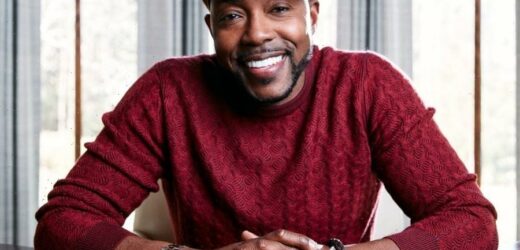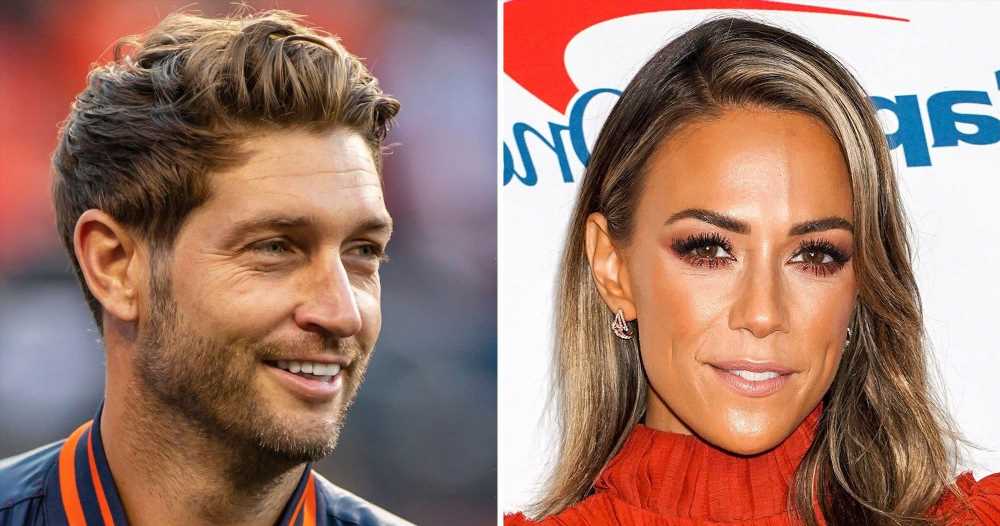If there’s one person in Hollywood whom you can say, unequivocally, has Black folks’ backs, it’s Will Packer. For more than 20 years, the producer and founder of Will Packer Productions and Will Packer Media has shown us Black love from films such as Think Like A Man all the way up to last year’s The Photograph. We’ve witnessed family and friendship in movies like This Christmas and Stomp The Yard. And even as he made a foray from scripted television shows like Being Mary Jane into reality TV with Ready To Love and Put a Ring On It, Packer has steered clear of negative stereotypical portrayals of Black men and women while still allowing their most authentic selves to shine through.
As audiences continue to watch the love connections between the singles in the latest season of Ready To Love play out on OWN TV, we had a chance to chat with Packer about conceiving the show — and pitching directly to Oprah Winfrey, how Florida A&M University prepared him for success in the entertainment industry, and producing the 94th Academy Awards in 2022.
What sparked the idea for Ready To Love?
WILL PACKER: I actually pitched Oprah on this show herself. I went to her house and we were talking about ideas for shows that I could make for her. I had not done an unscripted show before. And she said, “I like this idea of yours Will, but it can’t be no mess. You can’t have me looking crazy. We don’t do stuff on this network that they might do on some other networks.”
https://youtube.com/watch?v=9h5bZOCSijU%3Ffeature%3Doembed
I said: “Queen O, I got you.” I said, “It’s going be fun drama, but it’s not going be the same kind of mess because these would be grown people. These would be adults.” It’s a little bit different when you have 20-somethings, you don’t really know what you want in a relationship. I’m not saying that older people don’t act a complete fool at times, because they do. And sometimes that makes for good television, but I’m super proud of the fact that now we have gone to multiple cities, multiple seasons and have had a host of people. And we have people from the show that have actually found love and stayed together, and some folks that met when the cameras were on, got together when the cameras were off. It’s a phenomenon, now. We definitely have a core audience that loves the show and it’s getting bigger every week.
What made you choose D.C. as the location for this season?
PACKER: Every city has its own flavor, and D.C. folks are driven. They are ambitious because you have so many people that work in government and in the political realm and those are people that oftentimes are go-getters. It’s a very competitive environment and what you’re going to see is that these people bring that same competition that they bring from the political arena, to the show. They bring it to the dating world. The women, the men: aggressive. It doesn’t matter. They’re aggressive. They see something they want, they go get it, because that’s a little bit of the culture of D.C.
Atlanta and Houston were Southern cities — a little bit slower, a little bit like “what’s for me is for me, I’ll wait for things to come to me. I’ll wait for the right to dynamic to happen.” D.C., you’re not seeing that. You see people that are going after it.
Going back to Oprah’s point, a lot of movies and shows do rely on “mess” to build and audience and you never have. What’s the secret to your approach and success?
PACKER: I always think about the audience, honestly. I start thinking about who I’m making the show for and how they want to see themselves or a journey that they want to take with characters or storylines that can be either provoking or inspiring or aspirational. I like to see, especially Black people, as our full selves. You don’t have to just show Black people as perfect super human beings. That’s not true and that’s not realistic, but you also can’t just show them as completely imperfect, unintelligent, and shiftless. You got to have a balance. And that’s what I’m trying to do. I just try to show real depictions of African American life.
Your alma mater, FAMU, recently named an amphitheater in your honor for the work you’ve done. How did that moment feel?
PACKER: I haven’t really quite been able to put into words yet. The stage of the career that I’m at, you start to think about your legacy. You start to think about the things that you’ve done that have influenced people. And you start to think about how you can give back to the institutions that mean so much to you and there’s no question that FAMU is that for me. I also wanted to make HBCU giving cool and sexy. I wanted it to be something that other peers of mine would say, “Oh, I want to do that too.” I wanted it to have that kind of energy. So that’s why we had a ceremony and had some celebrities there and had it televised and all that. When people give to other institutions, a big deal is made about it. Let’s make a big deal about giving back to HBCUs, which are near and dear to my heart.
How do you feel FAMU prepared you for where you are today? PACKER: FAMU was such a competitive yet nurturing environment. That’s how it prepared me. People think, wow, everybody at school is Black so everybody thinks the same; it’s monolithic. Please, it was, without a doubt, one of the most competitive environments that I’ve been in and I work in Hollywood. Universal and Sony and Warner Brothers, they got nothing on the Panhellenic Council when you’re trying to get something through as an Alpha and the AKAs and the Ques don’t want to hear that, you know what I mean? Or you got to go before the Student Senate with the proposal and you asking for money. You got these student senators that are looking at you like, “And what? I’m not impressed.” FAMU helped me hone my presentation skills, being able to sell and persuade people. But it was also nurturing. I always knew that the school cared. You go to a big school and, just to be very frank, you do kind of feel like if I drop out tomorrow, would anybody really care? You’re a number at a lot of those places and I didn’t feel like a number at FAMU at all. I felt like a person. I felt like somebody at the school cared about my success. Next year, you’ll be producing the 94th Academy Awards which is the pinnacle event for actors. Talk about the significance of it for you on the production side? PACKER: It’s huge. It’s huge. They told me that I was the first solo producer and it was like, wow. In the history of such an important and esteemed event, for me to be any kind of a first is amazing. But just to be a part of it, I’m excited, and excited for what the show is going to be. And it’s a huge, huge honor for them to allow me and to entrust me with what literally is the pinnacle event — you said it. It’s actors, directors, writers, you name it. If you work in the industry, many people, they work all their lives for this moment. And I’m honored to try to do what I can to elevate the show and get as many eyeballs on it as possible. So stay tuned, more details coming. Source: Read Full Article


